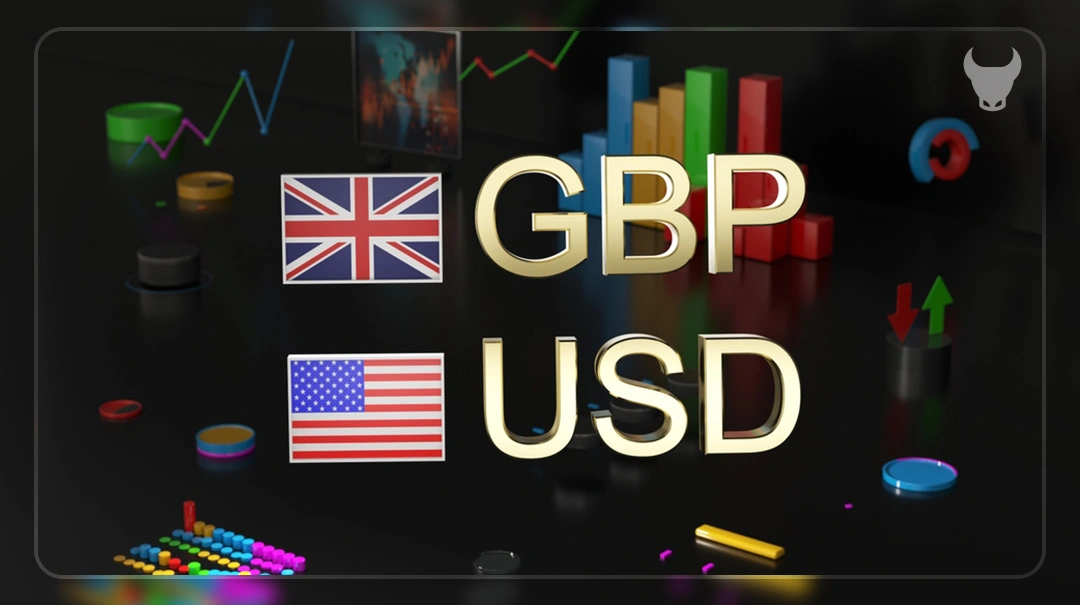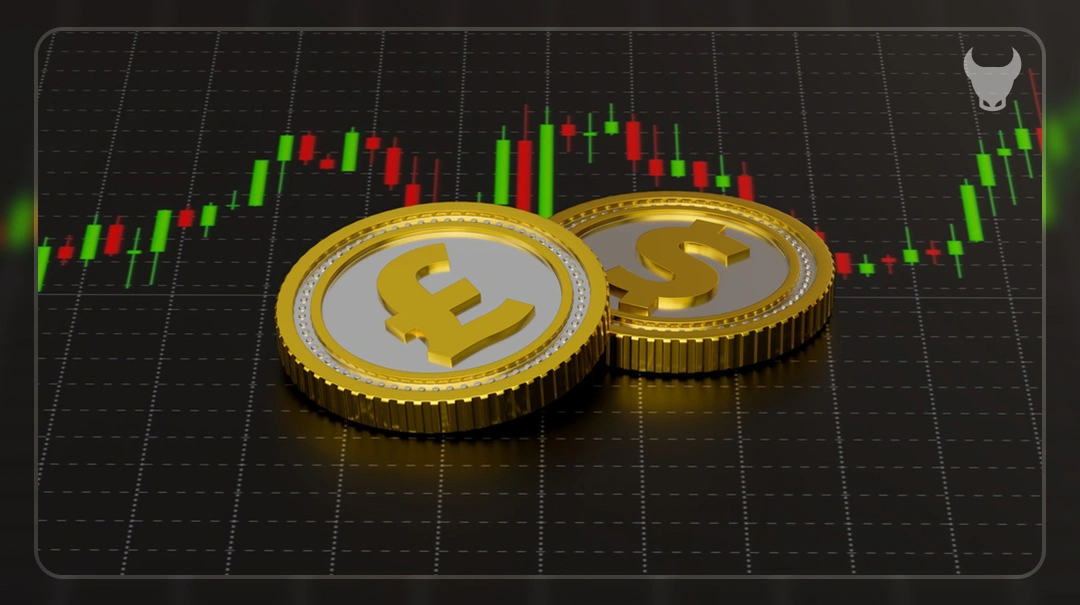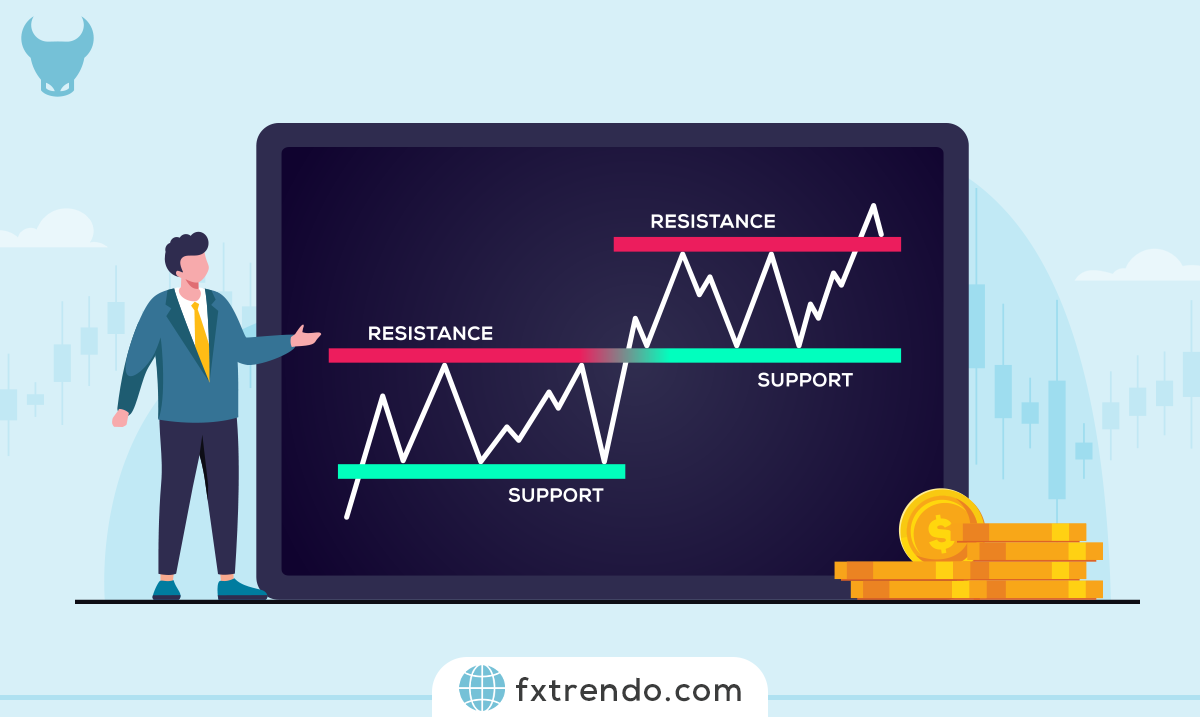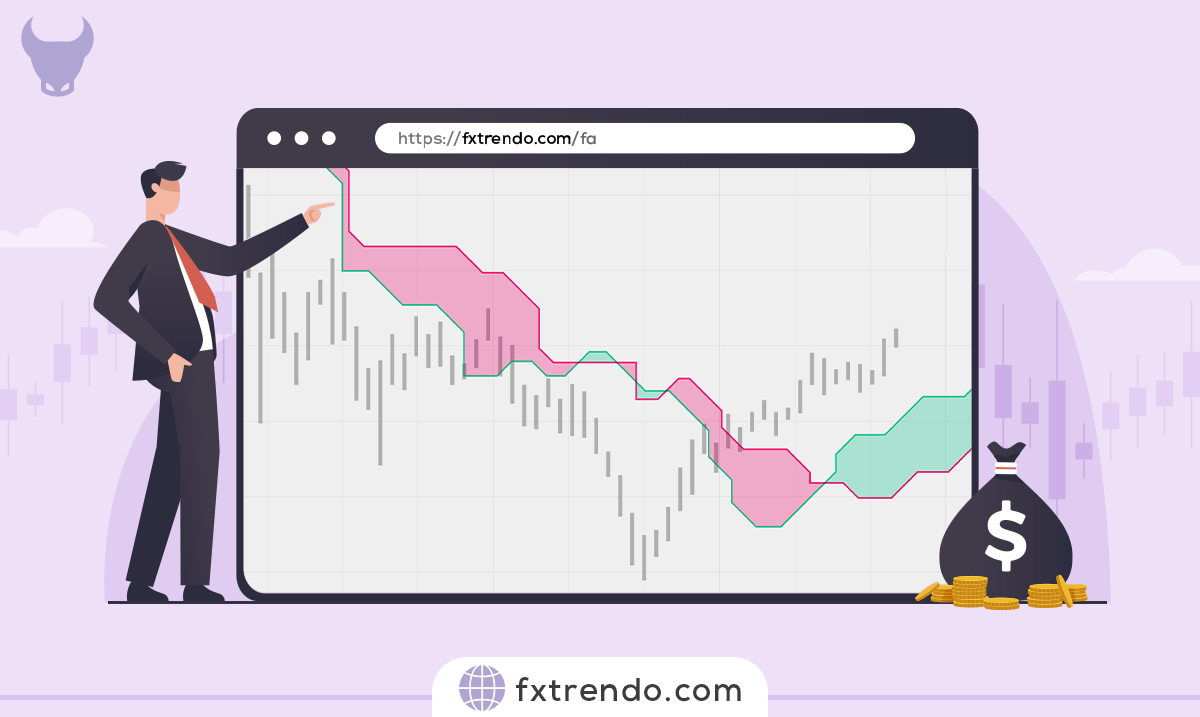It’s the largest financial market in the world, with a daily trading volume exceeding $6 trillion. Traders from all over the globe participate in this market, making it highly liquid and dynamic.
One of the most traded currency pairs in the forex market is the GBP/USD, often referred to as “Cable.” This pair represents the exchange rate between the British Pound (GBP) and the US Dollar (USD).
The purpose of this guide is to provide you with a comprehensive understanding of how to trade the GBP/USD currency pair effectively. We’ll cover essential topics such as market analysis, trading strategies, and risk management.
By the end of this guide, you’ll have the knowledge and confidence to navigate the forex market and make informed trading decisions with the GBP/USD currency pair.
Let’s get started on this exciting journey!
What is GBP/USD?
The GBP/USD currency pair represents the exchange rate between the British Pound (GBP) and the US Dollar (USD). It shows how many US dollars are needed to purchase one British pound.
For example, if the exchange rate is 1.30, it means one pound is equivalent to 1.30 US dollars. This pair is widely traded due to the economic significance of both the UK and the US.
The GBP/USD currency pair has a rich history and has been influenced by numerous significant events.
During the Great Recession of 2008, the value of the British pound fell sharply against the US dollar as investors sought the safety of the dollar.
In 2016, the Brexit referendum caused another major shift, with the pound losing nearly 20% of its value against the dollar in the month following the vote. These events highlight the pair’s sensitivity to economic and political changes.
Read more:
What is the USDJPY Currency Pair in FX?
Factors That Influence GBP/USD Trends
Several factors influence the trends of the GBP/USD currency pair, making it essential for traders to understand these elements to make informed decisions.
1. Economic Indicators:
Key economic data from both the UK and the US, such as GDP growth, employment figures, and inflation rates, can significantly impact the GBP/USD exchange rate. Positive economic data typically strengthens the respective currency.
2. Interest Rates:
Central banks, like the Bank of England (BoE) and the Federal Reserve (Fed), set interest rates that influence currency values. Higher interest rates generally attract foreign investment, boosting the currency’s value.
3. Political Events:
Political stability and events, such as elections, referendums, and policy changes, can cause fluctuations in the GBP/USD pair. For instance, Brexit had a profound impact on the British Pound.
4. Market Sentiment:
Traders’ perceptions and market sentiment can drive currency movements. If traders believe the UK economy will perform well, the GBP may strengthen against the USD, and vice versa.
5. Trade Relations:
The trade balance between the UK and the US also plays a role. A trade surplus (exports greater than imports) can strengthen the GBP, while a deficit can weaken it.
6. Geopolitical Events:
Global events, such as conflicts or international agreements, can affect investor confidence and influence currency trends.
Understanding these factors helps traders anticipate potential movements in the GBP/USD pair and develop effective trading strategies.
Why is GBP/USD popular among traders?
The GBP/USD currency pair is popular among traders for several reasons:
1. High Liquidity:
GBP/USD is one of the most liquid currency pairs in the forex market. This means there are always buyers and sellers, making it easier to enter and exit trades quickly.
2. Volatility:
The pair is known for its volatility, providing numerous trading opportunities. Price movements can be significant, allowing traders to capitalize on short-term fluctuations.
3. Economic Influence:
Both the UK and the US have significant economic influence globally. Economic data releases from these countries can create substantial market movements, which traders can exploit.
4. Trading Hours:
The GBP/USD pair is actively traded during both the London and New York sessions, covering a large portion of the trading day. This extended trading period offers more opportunities for traders.
5. Technical Analysis:
The GBP/USD pair often respects technical analysis patterns and indicators, making it a favorite among technical traders. Chart patterns, trend lines, and indicators can be effectively used to predict price movements.
6. News Impact:
News events and economic reports from the UK and the US can lead to sharp price movements. Traders who stay informed about these events can take advantage of the resulting volatility.
7. Diverse Strategies:
The pair’s characteristics allow for a variety of trading strategies, from scalping and day trading to swing trading and long-term investing.
These factors make GBP/USD an attractive choice for both novice and experienced traders looking to capitalize on the dynamic forex market.
How to Trade GBP/USD in Forex?
Trading the GBP/USD currency pair involves several key steps and strategies. Here’s a simple guide to get you started:
1. Understand the Basics
Before diving into trading, it’s essential to understand the basics of the GBP/USD pair. This pair represents the exchange rate between the British Pound (GBP) and the US Dollar (USD). The value of this pair fluctuates based on economic indicators, political events, and market sentiment.
2. Analyze the Market
Market analysis is crucial for successful trading. There are two main types of analysis:
Technical Analysis:
This involves studying price charts and using indicators like moving averages, RSI, and MACD to predict future price movements.
Fundamental Analysis:
This focuses on economic data, such as interest rates, employment figures, and GDP growth, to gauge the overall health of the UK and US economies.
3. Develop a Trading Strategy
A well-defined trading strategy helps you make informed decisions. Some common strategies include:
Trend Following:
Identifying and trading in the direction of the prevailing trend.
Range Trading:
Buying at support levels and selling at resistance levels within a defined range.
Breakout Trading:
Entering trades when the price breaks out of a significant support or resistance level.
4. Manage Risk
Risk management is vital to protect your capital. Use tools like stop-loss orders to limit potential losses and take-profit orders to secure profits. It’s also important to determine your risk tolerance and never risk more than you can afford to lose.
5. Stay Informed
Keep up with the latest news and developments that can impact the GBP/USD pair. Economic reports, central bank announcements, and geopolitical events can all influence the market.
6. Practice with a Demo Account
If you’re new to trading, consider practicing with a demo account. This allows you to test your strategies and gain experience without risking real money.
7. Choose a Reliable Broker
Select a reputable forex broker that offers competitive spreads, robust trading platforms, and good customer support. Ensure the broker is regulated by a recognized authority.
By following these steps and continuously learning, you can improve your chances of success in trading the GBP/USD currency pair.
What Is the Best Times to Trade GBP/USD?
Timing is crucial when trading the GBP/USD currency pair.
The best times to trade the GBP/USD currency pair are when the market is most active, as this is when price movements are more likely to occur. Here are the key trading times to consider:
1. London Session (08:00 – 16:00 GMT):
The London session is one of the most active trading periods for GBP/USD. The high liquidity during this session leads to tighter spreads and more significant price movements. This is an ideal time for traders looking to capitalize on volatility.
2. New York Session (13:00 – 21:00 GMT):
The New York session overlaps with the latter part of the London session, creating a period of increased trading activity. This overlap often results in higher volatility and trading opportunities, especially in the first few hours.
3. Overlap of London and New York Sessions (13:00 – 16:00 GMT):
The overlap between the London and New York sessions is the most active and liquid period for GBP/USD trading. During these hours, the market experiences the highest trading volume, leading to more pronounced price movements.
4. Economic Data Releases:
Key economic data releases from the UK and the US, such as GDP reports, employment figures, and interest rate decisions, can cause significant volatility in the GBP/USD pair. Traders should be aware of the economic calendar and be prepared for potential market movements during these times.
5. Avoid Low-Volume Periods:
Trading during low-volume periods, such as late in the New York session or during the Asian session, can result in wider spreads and less predictable price movements. It’s generally best to avoid trading during these times unless you have a specific strategy that benefits from lower volatility.
By focusing on these optimal trading times, you can take advantage of the highest liquidity and volatility in the GBP/USD market, enhancing your chances of making profitable trades.
What are GBP/USD Trading Strategies?
Trading the GBP/USD major currency pair can be approached with various strategies, each suited to different trading styles and market conditions. Here are some popular GBP/USD trading strategies:
1. Trend Following:
This strategy involves identifying and trading in the direction of the prevailing trend. Traders use tools like moving averages, trend lines, and the Relative Strength Index (RSI) to confirm the trend direction. The goal is to enter trades that align with the trend and ride the momentum.
2. Range Trading:
When the GBP/USD pair is not trending and is instead moving within a defined range, traders can buy at the support level and sell at the resistance level. This strategy relies on identifying key support and resistance zones and using oscillators like the RSI or Stochastic to time entries and exits.
3. Breakout Trading:
Breakout traders look for significant price movements that break through established support or resistance levels. This strategy aims to capture the initial momentum of a breakout, which can lead to substantial price movements. Traders often use volume indicators to confirm the strength of the breakout.
4. News Trading:
Economic news and data releases from the UK and the US can cause sharp movements in the GBP/USD pair. News traders monitor economic calendars and trade based on the outcomes of key events like interest rate decisions, employment reports, and GDP releases. This strategy requires quick decision-making and a good understanding of market expectations.
5. Scalping:
Scalping involves making numerous small trades throughout the day to capture minor price movements. Scalpers typically use short time frames, such as 1-minute or 5-minute charts, and rely on technical indicators to identify entry and exit points. This strategy requires discipline and quick execution.
6. Swing Trading:
Swing traders aim to capture price swings that occur over several days or weeks. This strategy involves holding positions for a longer period compared to day trading or scalping. Swing traders use a combination of technical and fundamental analysis to identify potential trade setups.
7. Carry Trade:
This strategy involves borrowing a currency with a low-interest rate and investing in a currency with a higher interest rate. Traders earn the interest rate differential, known as the “carry.” While this strategy is more common in other currency pairs, it can be applied to GBP/USD if there is a significant interest rate differential between the UK and the US.
By understanding and applying these strategies, traders can effectively navigate the GBP/USD market and increase their chances of success. It’s important to choose a strategy that aligns with your trading style and risk tolerance.
Risk Management in GBP/USD Trading
Effective risk management is crucial when trading the GBP/USD currency pair. Here are some key strategies to help you manage risk and protect your capital:
1. Set Stop-Loss Orders
A stop-loss order limits potential losses by automatically closing a trade if the price moves against you by a certain amount. This helps prevent significant losses and protects your trading capital.
2. Use Take-Profit Orders
Take-profit orders lock in profits when the price reaches a predetermined level. This ensures you secure gains without constantly monitoring the market. Set take-profit levels based on your trading strategy and market analysis.
3. Determine Risk Tolerance
Only risk a small percentage of your trading capital on each trade, typically no more than 2-3%. This helps you avoid significant losses and ensures you can continue trading even after a few losing trades.
4. Diversify Your Trades
Diversification involves spreading your investments across different trades to reduce risk. Instead of putting all your capital into a single trade, consider trading multiple currency pairs or using different trading strategies. This can help mitigate the impact of a single losing trade on your overall portfolio.
5. Monitor Economic Indicators
Economic indicators, such as interest rates, employment figures, and GDP growth, can significantly impact the GBP/USD pair. Stay informed about upcoming economic events and adjust your trading strategy accordingly. This helps you anticipate market movements and manage risk more effectively.
6. Practice with a Demo Account
If you’re new to trading, consider using a demo account to practice your risk management strategies. This allows you to gain experience and confidence without risking real money. Use this opportunity to test different stop-loss and take-profit levels, as well as other risk management techniques.
By implementing these risk management strategies, you can protect your capital and improve your chances of success in trading the GBP/USD currency pair.
Tips for Successful GBP/USD Trading
Trading the GBP/USD currency pair can be rewarding if approached with the right strategies and mindset. Here are some tips to help you succeed:
1. Understand the Fundamentals
Before trading, understand the fundamental factors that influence the GBP/USD exchange rate. Keep an eye on economic indicators and news releases from both the UK and the US. Factors such as GDP growth, interest rates, inflation, and political developments can significantly impact the exchange rate.
2. Analyze Technical Indicators
Technical analysis is vital in forex trading. Use indicators like moving averages, Fibonacci retracements, and oscillators to identify trends, support and resistance levels, and potential entry and exit points. Combining technical analysis with fundamental analysis can provide a comprehensive view of the market.
3. Follow Trend Trading Strategies
Trend trading is popular among forex traders. Identify the prevailing trend by analyzing price charts and use indicators like moving averages to confirm the trend direction. Look for pullbacks or retracements to enter trades in the direction of the trend. Set stop-loss orders to protect your capital and take-profit orders to lock in profits.
4. Implement Breakout Strategies
Breakout trading can be effective when trading GBP/USD. A breakout occurs when the price moves above or below a significant support or resistance level. Monitor price action and identify consolidation patterns, such as triangles or rectangles, which precede breakouts. Enter trades in the direction of the breakout, using stop-loss orders to manage risk and trailing stops to protect profits.
5. Practice Risk Management
Effective risk management is crucial for successful trading. Determine your risk tolerance and set appropriate stop-loss levels for each trade. Avoid risking more than 2-3% of your trading capital on a single trade to protect yourself from significant losses.
6. Stay Disciplined and Patient
Discipline and patience are key to successful trading. Stick to your trading plan and avoid making impulsive decisions based on emotions. Wait for the right trading opportunities and be prepared to sit out when the market conditions are not favorable.
7. Utilize Risk-Reward Ratio
Aim for trades with a favorable risk-reward ratio. This means that the potential reward should be greater than the potential risk. A common ratio is 2:1, where the potential profit is twice the potential loss. This helps ensure that even if some trades are unsuccessful, the overall profitability remains positive.
By following these tips and continuously learning, you can improve your chances of success in trading the GBP/USD currency pair.
Conclusion
Trading the GBP/USD currency pair can be rewarding if approached with the right knowledge and strategies.
By understanding the fundamentals, analyzing market trends, and implementing effective trading strategies, you can navigate the forex market with confidence.
Whether you are a beginner or an experienced trader, having a well-defined plan and staying disciplined are key to success.
With continuous learning and adaptation, you can enhance your trading skills and increase your chances of making profitable trades.
FAQs
What is the GBP/USD currency pair called?
Is GBP/USD a good pair to trade?
Which pair correlates with GBP/USD?









